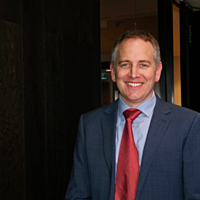How wholesale investors find fund managers that get them returns
Experience in the industry has shown that many Australians are often stuck with sub-optimal investments and institutions managing their money, often without knowing why or what else to do.
They routinely don’t invest with the better fund managers and investments and the investment industry and increasing regulatory requirements can restrain rather than help investors. When it is your money, you deserve to know whether there is a better alternative, which is even more impactful if you qualify as a wholesale client.
Routinely the industry including super funds, advisers, researchers and investors produce subpar performance by restricting their clients to sub-optimal investment solutions or simply chasing past great performance, pushing money into an asset or fund manager at the wrong time and after they’ve done well and are at high risk of mean-reverting. I’m sure that’s happened to you, too, either of your own volition or with the encouragement of a wayward advisor or institution.
Investors then complain that active management doesn’t work for them but what doesn’t work is the system and people they’re using. Active management can and should routinely work extremely well if you access the best parts of the investment architecture and a better investment process and the better aligned and more experienced and authentic people rather than the professional marketers and sales firms.
In fact, active management can and should routinely work extremely well if you access the best parts of the investment architecture and a better investment process and the better aligned and more experienced and authentic people rather than the professional marketers and sales firms.
While I could write an article about all the industry incentives that fail investors and why the system won’t improve any time soon (rather, it’s getting worse), this article will hone in on just a couple of key and common mistakes investors make. It is by no means comprehensive and is not investment advice, but it potentially gives you a better chance of investing much more effectively and informs you about where you might be going wrong.
It is by no means comprehensive and is not investment advice, but it potentially gives you a better chance of investing much more effectively and informs you about where you might be going wrong.

PROBLEM 1 – Institution Versus Boutique
Large corporates and institutions often don’t invest money well. Why? They have a different culture, incentives and motivations than you do, which means they aren’t as well aligned as they should be with you and your interests. For example, they are often focused on asset gathering and are marketing-led rather than investment-led, when you just want someone to perform well and act in your interests, not just in theirs. Frequently they are too big, and investing a lot of money well is more difficult for numerous reasons. Large organisations focus on empire building, short term shareholder returns, and the retention of their assets rather than industry best practices and adapting to a changing world. Very commonly, organisations talk the talk rather than walk the walk. Organisational culture and nature also often mean that while they may temporarily employ good people who want the big names on their CV while they’re young and inexperienced, the best people will often be looking to move on and elsewhere as soon as they can.
SOLUTION 1: Don’t blindly invest with large corporates and institutions unless you have a strong reason to, because this stacks the odds against you.
Instead, follow what the most authentic and performance-orientated people do and prioritise boutique fund managers. Boutique managers are routinely much better aligned with investors. They often invest their own friends and family money, are more aligned with performance rather than simply asset gathering, and routinely have an investment culture instead of a marketing and sales culture.
Furthermore, they don’t need to waste time managing up to be promoted, or on internal corporate meetings, and are often more experienced and investment savvy. They often leverage a broad industry network (and are part of a large, more diverse virtual organisation rather than a restricted corporate one) and can cherry-pick the best people to align with to produce a successful performance culture.
Ultimately most boutiques can only thrive and survive if they add value to investors because they operate in a competitive industry when their money is not captured or static in the system like it is with large super funds, corporates and institutions. Boutiques can add value in numerous ways directly aligned with investors’ interests, such as being genuinely active and overweighting great assets and investments rather than being beholden to other influences or suffering “death by committee” or management meetings. Boutique managers hence stack the odds more in your favour. Early-stage boutique managers are often even better as they are super motivated to perform and won’t have excessive assets or competing interests to manage.
PROBLEM 2 – Retail versus Wholesale
Common retail investment solutions such as large superannuation funds and retail funds – those readily and widely available to retail clients - are routinely sub-optimal.
Ever-increasing regulatory and client requirements weigh down retail managers. This can distract from or preclude the main game of sound investing. They are more beholden to numerous intermediaries including regulators, researchers, platforms and commercial interests and often need to “slot in” to narrow ideas of what a fund manager should be – including sometimes being significantly restricted in how they invest or what they can invest in, to the point when they can be structurally relatively ineffective. For example, the new regulatory regime affecting super funds will, in future, strongly encourage an even more benchmark-based investment approach rather than a more client-centric outcome-based investing approach. This creates strong asset class dependency on long-only public equities and more binary type outcomes for your investments, not what you probably really want for your hard-earned capital.
Ironically, much of the compliance and restrictions are implemented in the name of investor protection; however, this can also inadvertently protect from diversity and a better investment return! No wonder retail investors complain they don’t have access to the best investments; because, quite simply, they don’t.
SOLUTION 2: Look for good wholesale funds that are aligned with your interests and obviously investment orientated rather than being asset gatherers.
If you qualify as a wholesale client under the Corporations Act, such as having a $250,000 annual salary over the last two years or $2.5 million net assets, and are sufficiently sophisticated it is generally not a great idea to invest your funds in the same way as retail client funds. Avoid advisers and institutions that want to invest you this way for their convenience when they should be doing so much better for you by treating you appropriately if you are a wholesale client and taking advantage of the large potential benefits this offers.
There is a good reason why the wealthiest and most successful run their own SMSFs rather than invest with mainstream superannuation funds. This way, they can invest in the best investment solutions out there, rather than be restricted to the more constrained and mediocre ones, although sometimes they don’t know how to fully take advantage of this.
There are many ways wholesale funds can demonstrate that they are capable and aligned with investors, and the more they can demonstrate this, the better…
Ways to Assess Fund Manager Alignment with Optimal Investor Outcomes
Proof of better fund manager alignment can be found in many ways. Some of these include:
Fees
(1) Charging low base fees with the fund manager making their money mainly from performance fees (rather than high management fees and continual asset gathering to increase fee collection, irrespective of investor returns and volatility).
(2) The manager only charges performance fees if they make you a positive return, as charging performance fees over a benchmark that doesn’t matter to your goals and that goes backwards isn’t great alignment if investment markets turn down.
Nimble Managers
(3) Having low funds under management and strict capacity limits on the funds under management that the manager will manage across different investment offerings.
(4) Having few or only one investment fund in which the fund manager substantively invests their own family and friends and which you too can invest alongside them.
Track Record and Clear Articulation
(5) A history of valuable work experience and previous strong and consistent performance in other roles, and no question mark about the manager’s authenticity or focus on what matters to you.
(6) The ability to explain to investors how they will add value and have added valued in the past, and how they have learnt from markets and their mistakes and won’t make these again.
Superior Risk Management
(7) Superior risk management through genuine diversification and other methods such as using options for hedging risk. Good managers can be but don’t necessarily need to be higher risk and may, in fact, demonstrate or target lower risks than the average, which better aligns with investor goals for capital preservation.
Culture
(8) A recognition that the fund manager’s approach is not the only good way to manage money and that the manager doesn’t suffer from hubris. For example, the fund manager may be humble enough to invest with other fund managers for diversification and value-added rather than pretending they have all the answers with their in-house solutions across every asset class (given this is unrealistic).
Take Advantage of a Wonderful Environment for Great Active Management
These are exciting times for good active investing across multiple asset classes and strategies. The opportunity set is vast and there are potential gains to be made and important risks that need to be managed. We continue to search for new active boutique fund managers to invest with that can demonstrate to us that they offer specialist expertise and are a sophisticated value-adding operator and importantly are aligned with investors in our fund.
If you haven’t had a great experience in what has been a spectacularly positive investment environment, look for a better alternative. Hopefully, this article will help you with some suggestions about how you can approach this challenge and invest more effectively in future. Your comments and feedback are welcome, and we’re happy to discuss further as required.
Never miss an insight
Enjoy this wire? Hit the ‘like’ button to let us know. Stay up to date with my content by hitting the ‘follow’ button below and you’ll be notified every time I post a wire.
Not already a Livewire member? Sign up today to get free access to investment ideas and strategies from Australia’s leading investors.

